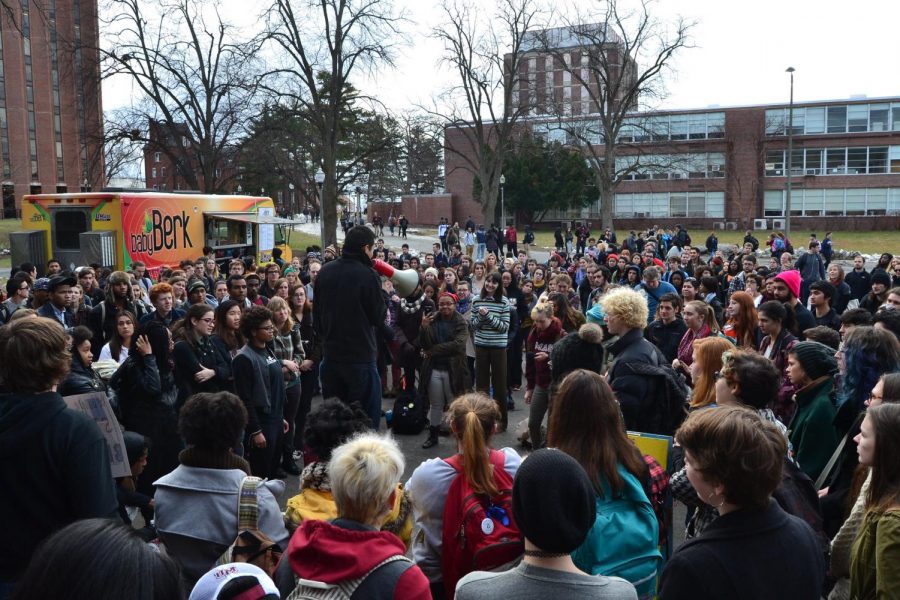Social media has become inescapable over the last decade. On one hand, it acts as a mouthpiece for everyone from your estranged aunt who shares mildly offensive memes to random people you went to high school with who insist on updating the world on their weekly overpriced coffee purchase. On the other hand, social media has evolved into a platform for advocating social justice.
It is increasingly difficult for social media users today to avoid the endless stream of retweets and reposts from their faux-woke friends and family members. From the tragically short-lived Blue for Sudan movement to the ever-present sharing of dubious solutions for the climate crisis – I’m looking at you, metal straws – social media has become a place for users to flaunt their political views and affiliations on.
Social media is a powerful tool for regular people to spread information about world events and politics faster than ever before. Users can help raise awareness for causes which might not otherwise be publicized worldwide – for example, news of the fire burning in the Amazon rainforest spread across the internet in a matter of days, if not hours. However, this information superhighway can also be used to spread dangerous misinformation. In fact, the President of France, Emmanuel Macron, along with influential celebrities like Madonna and Leonardo DiCaprio, were caught sharing images of the Amazon fire which were actually from different fires. Some of the photos shared by people with millions of followers were dated as far back as 1989.
Besides the rapid-fire information being publicized without sources or verification, there is the rising issue of passive activism across social media. Social media users who try to promote social justice to their followers usually have good intentions, but often do little more than share a post. This is reminiscent of the usual “thoughts and prayers” rhetoric we often see in the aftermath of a national tragedy. In reality, a retweet of a sad looking cow does nothing to combat the ecological damages and questionable ethics within the dairy industry. The people who share videos of garbage-packed oceans are often the same people who toss their empty White Claw cans or Juul pods on the ground instead of in the recycling bin.
It is true that in some cases, there are few ways for everyday people to contribute to the causes they care about. Sometimes, just raising awareness about social issues is the way towards change. But contributing to a solution often does more good than posting an Instagram story. You can look for links to donate to causes you are passionate about.– If sharing money through a GoFundMe sounds sketchy to you, find links which go straight to the source. For example, if you are passionate about reproductive rights, Planned Parenthood has a donation tab at the top of their website which lists ways to donate directly to the organization.
If you don’t want to donate your money, you can donate your time. If you’re passionate about the environment, volunteer to clean up your neighborhood and take small steps in your daily life to reduce your carbon footprint, such as utilizing reusable bags or water bottles or taking your bike to work. Attend events like the Women’s March or the Climate March. You can also lobby your state representatives in order to raise awareness about specific policy issues. Here is a website with specific instructions on where and how to lobby. Sign petitions and write letters to your congressmen in order to push for change. Following the Parkland and Las Vegas shootings, people rallied around tighter restrictions on automatic weapons, which led to 10 states banning the sales of bump stocks, as well as several newly proposed gun laws which will be debated on the Congress floor beginning September 4, 2019.
The old saying that actions speak louder than words certainly rings true to this day. Spreading information about issues plaguing the world is certainly helpful in raising awareness but it does not necessarily lead to a solution. In order to truly facilitate change, people who care must get involved, whether on a small scale or a global one. Citizens who want to make the world a better place must rise from the comfort of their armchair activism and put their money where their mouth is, be it figuratively or literally.
Ana Pietrewicz is an assistant Op-Ed editorand can be reached at [email protected] or on twitter at @anapietrewicz.





















Francis bujnowski • Sep 5, 2019 at 12:39 pm
Nice editorial
Tasty Tomato • Sep 5, 2019 at 11:05 am
“Faux-woke” perfectly describes progressive college students and current activist.